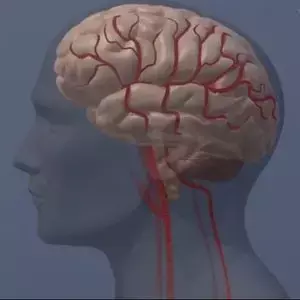- Home
- Medical news & Guidelines
- Anesthesiology
- Cardiology and CTVS
- Critical Care
- Dentistry
- Dermatology
- Diabetes and Endocrinology
- ENT
- Gastroenterology
- Medicine
- Nephrology
- Neurology
- Obstretics-Gynaecology
- Oncology
- Ophthalmology
- Orthopaedics
- Pediatrics-Neonatology
- Psychiatry
- Pulmonology
- Radiology
- Surgery
- Urology
- Laboratory Medicine
- Diet
- Nursing
- Paramedical
- Physiotherapy
- Health news
- Fact Check
- Bone Health Fact Check
- Brain Health Fact Check
- Cancer Related Fact Check
- Child Care Fact Check
- Dental and oral health fact check
- Diabetes and metabolic health fact check
- Diet and Nutrition Fact Check
- Eye and ENT Care Fact Check
- Fitness fact check
- Gut health fact check
- Heart health fact check
- Kidney health fact check
- Medical education fact check
- Men's health fact check
- Respiratory fact check
- Skin and hair care fact check
- Vaccine and Immunization fact check
- Women's health fact check
- AYUSH
- State News
- Andaman and Nicobar Islands
- Andhra Pradesh
- Arunachal Pradesh
- Assam
- Bihar
- Chandigarh
- Chattisgarh
- Dadra and Nagar Haveli
- Daman and Diu
- Delhi
- Goa
- Gujarat
- Haryana
- Himachal Pradesh
- Jammu & Kashmir
- Jharkhand
- Karnataka
- Kerala
- Ladakh
- Lakshadweep
- Madhya Pradesh
- Maharashtra
- Manipur
- Meghalaya
- Mizoram
- Nagaland
- Odisha
- Puducherry
- Punjab
- Rajasthan
- Sikkim
- Tamil Nadu
- Telangana
- Tripura
- Uttar Pradesh
- Uttrakhand
- West Bengal
- Medical Education
- Industry
Scientists at Sage Therapeutics develop safe, effective Alzheimer's drug

A new experimental drug, called SAGE-718 has been found to exhibit improved executive function,thinking and memory skills in Alzheimer's patients with mild dementia and is deemed safe. This is paving the way for clinical trials of this drug on other neurodegenerative diseases like Parkinsons and Huntington's.
The study was released yesterday and will be presented at the American Academy of Neurology 74th Annual Meeting being held in person in Seattle, April 2 to 7, 2022 and virtually, April 24 to 26, 2022.
"Cognitive impairment is often one of the earliest signs of Alzheimer's disease, can be very difficult for patients and their families, and represents an area of great unmet medical need," said study author Aaron Koenig, MD, of Sage Therapeutics in Cambridge, Mass., the maker of the investigational drug. "These results support further research with larger numbers of people to determine whether this therapy is safe and effective in treating cognitive impairment in Alzheimer's disease and related disorders and in improving how well people can function independently in their everyday lives."
The study involved 26 people with an average age of 67. They had an average score of 20.7 points on a common cognitive test, indicating cognitive performance consistent with mild cognitive impairment or mild dementia. The participants took SAGE-718 daily for two weeks and were then followed for another two weeks. They completed tests of thinking and memory at the beginning of the study, at the end of treatment, and after one month. Both the participants and researchers knew that SAGE-718 was being administered.
The study was designed mainly to gather data on the drug's safety. There were no serious side effects of the drug. Five people had mild or moderate side effects believed to be related to the drug, such as headache or constipation.
After one month, the participants' scores on the cognitive test had improved by an average of 2.3 points, to 22.8 points.
Koenig said some participants also had improvement in assessments of how well they were able to complete their daily activities, especially in complex activities such as using a computer, carrying out household chores, and managing their medications. This coincided with consistent improvement on multiple tests of executive functioning that were administered during the trial.
Koenig said, "If replicated in future studies, such improvements suggest that this drug may eventually provide meaningful benefits to people in their everyday lives."
SAGE-718 is a type of drug called a positive allosteric modulator of N-methyl-D-aspartate (NMDA) receptors.
The study's limitations include its small size and that participants and researchers knew that the drug was being administered, which could lead to bias.
B.Sc Life Sciences, M.Sc Biotechnology, B.Ed
Isra Zaman is a Life Science graduate from Daulat Ram College, Delhi University, and a postgraduate in Biotechnology from Amity University. She has a flair for writing, and her roles at Medicaldialogues include that of a Sr. content writer and a medical correspondent. Her news pieces cover recent discoveries and updates from the health and medicine sector. She can be reached at editorial@medicaldialogues.in.
Dr Kamal Kant Kohli-MBBS, DTCD- a chest specialist with more than 30 years of practice and a flair for writing clinical articles, Dr Kamal Kant Kohli joined Medical Dialogues as a Chief Editor of Medical News. Besides writing articles, as an editor, he proofreads and verifies all the medical content published on Medical Dialogues including those coming from journals, studies,medical conferences,guidelines etc. Email: drkohli@medicaldialogues.in. Contact no. 011-43720751


